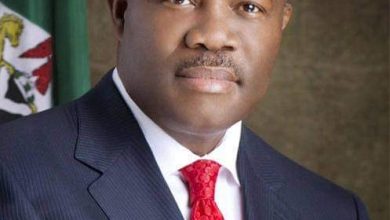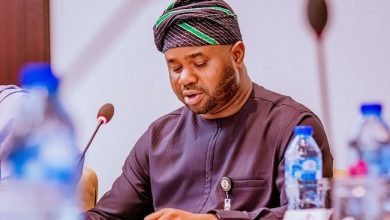Nigeria Records Foreign Direct Investment of $698.8 million in 2021

Nigeria attracted a sum of $698.78 million as foreign direct investments (FDIs) in 2021, representing its lowest level on record. This is according to data compiled by Nairalytics from the Central Bank of Nigeria (CBN).
A year-on-year comparison shows that FDIs into Nigeria dipped by 32% in 2021 to $698.8 million compared to the $1.03 billion recorded in the previous year. This also represented the fourth time Nigeria has recorded foreign direct investment below $1 billion in the past 15 years.
A major factor contributing to the constant decline in Nigeria’s ability to attract direct investments from foreign soil is the level of insecurity, ravaging most parts of the country, from the insurgency in the north, herdsmen and bandit attack, kidnapping, armed robbery amongst others.
The level of insecurity in the country has been a major pull-back for Nigeria’s foreign investment despite having significant number of startups in the tech space with the capacity to attract foreign investors.
Nigeria has failed to improve its FDI despite the CBN’s numerous policies geared towards attracting foreign inflows into the economy.
Another factor contributing to the unattractiveness of the Nigerian economy to foreign investors is our business environment.
Nigeria is ranked 131st among 190 economies in the ease of doing business, typically painting a grim picture of the country’s business environment, with inflation surging at record highs.
Another major challenge affecting FDIs in Nigeria is that it is becoming more difficult to get low-medium risk businesses in the country that will give significant returns in dollar term. Specifically, the business environment in Nigeria is impeded by the decline in the purchasing power of average Nigerians, making more people poorer on a per capital basis.
The poorer the people, the smaller the revenue market in dollar terms, which results in an even more compressed margin after taking into account the huge cost of operation as a result of inflation. Then the problem of exchange rate makes it even harder for foreigners to repatriate their funds and get a return that is worthwhile.
The first time was in 2010, following the backdrop of the 2008 global financial crisis, which saw Nigeria’s direct investment inflow drop from $3.33 billion recorded in 2009 to $728.9 million in 2010. It also fell below the $1 billion mark in 2017, 2019, and now 2021.
The recent drop in FDIs could be attributed to the ripple effect of the covid-19 pandemic on the Nigerian economy, which resulted in a contraction of the economy and contingents of downturns on the macro level.
Foreign direct investment is related to purchases made by a company or an investor from another country in a Nigerian company. According to the Organisation of Economic Co-operation and Development (OECD), FDI is an integral part of an open and effective international economic system and a major catalyst to a country’s developmentNigeria has been suffering from dwindling foreign inflows in recent years, piling significant pressure on the country’s FX liquidity, as surging demand for dollar in the economy ensured recurrent negative balance of payments for 10 quarters.
Most economies target increased FDI due to its importance in driving economic growth. Foreign Direct investment boosts the creation of jobs in the host country as investors build new companies in the country, which in turn leads to increased income, more purchasing power, and an overall expansion in the economy
However, not all doom and gloom It is worth noting that the official FDI may not completely capture all monies invested in Nigerian entities. For example, recall that Nairametrics reported that Nigerian startups raised over $1.6 billion in funding in 2021, most of which was invested directly into the companies in form of seed/series funding.
Meanwhile, the total amount captured in the official FDI data is way below $1 billion. This implies that investors are changing from the traditional means of investing, which involves the direct exchange of monies for assets.
Investors can now invest in local companies without actually moving the funds into the country, despite the company being headquartered in Nigeria. A number of Nigerian tech startups raised huge amounts in funding in the previous year, some of which include the likes of Opay, Flutterwave, Ventures Platform etc.
According to Opeoluwa Dapo-Thomas, an International Financial Analyst, he explained that the Nigerian economy is largely unstable and unpredictable, which to a large extent affects our capacity to attract FDIs.
“At the moment, we have a weak macroeconomic environment, policy inconsistency and the absence of a well-defined strategy for FDI as a component of economic growth. Generally, investors are looking for where to throw money and gain returns but the systemic risk in Nigeria is now high, given the fact that some investors struggled to repatriate their investment during the covid periods. There are a lot of places in the world to invest in, Nigeria is yet to show why they are worthy to be selected from the rest,” he said.
Kalu Ajah, a personal finance analyst highlighted some factors contributing to the downturn in the amount of foreign direct investments in Nigeria. He stated that the pull back on oil and gas investment due to climate change focus in the West has had a significant effect on Nigerian FDI. He also added that capital controls and bad optics of MTN being charged excessive fines have discouraged foreign investment sentiment in the Nigerian economy.
Meanwhile, he explained that a clear pathway through this is to pass policies that promote trade, by restructuring capital controls, fully implementing the Petroleum Industry Act, solve infrastructure deficit and curb the issue of insecurity.
Recall that Nairametrics had reported in December 2021 that global communication firm Equinix would be acquiring Nigerian data centre and connectivity solutions provider, MainOne for a value of $320 million, and is set to be completed in Q1 2022.
The MainOne deal has the potential of pushing Nigeria’s FDI numbers upward in 2022, given a terrible turn of event in the previous year.






